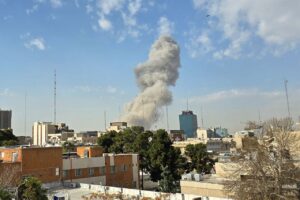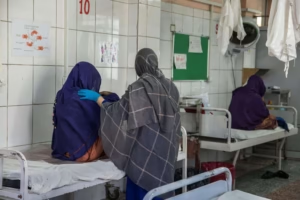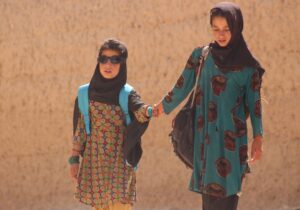MONITORING (SW) – The Human Rights Watch said in a fresh report that Taliban forces are deliberately targeting journalists and other media workers, including women, in Afghanistan.
Threats and attacks against journalists across the country have increased sharply since talks began between the Afghan government and the Taliban, heightening concerns about preserving freedom of expression and the media in any peace settlement, it said.
Human Rights Watch found that Taliban commanders and fighters have engaged in a pattern of threats, intimidation, and violence against members of the media in areas where the Taliban have significant influence, as well as in Kabul. Those making the threats often have an intimate knowledge of a journalist’s work, family, and movements and use this information to either compel them to self-censor, leave their work altogether, or face violent consequences. Provincial and district-level Taliban commanders and fighters also make oral and written threats against journalists beyond the areas they control. Journalists say that the widespread nature of the threats has meant that no media workers feel safe.
“A wave of threats and killings has sent a chilling message to the Afghan media at a precarious moment as Afghans on all sides get set to negotiate free speech protections in a future Afghanistan,” said Patricia Gossman, associate Asia director. “By silencing critics through threats and violence, the Taliban have undermined hopes for preserving an open society in Afghanistan.”
Human Rights Watch interviewed 46 members of the Afghan media between November 2020 and March 2021, seeking information on the conditions under which they work, including threats of physical harm. Those interviewed included 42 journalists in Badghis, Ghazni, Ghor, Helmand, Kabul, Kandahar, Khost, Wardak, and Zabul provinces and four who had left Afghanistan due to threats.
In a number of cases that Human Rights Watch documented, Taliban forces detained journalists for a few hours or overnight. In several cases they or their colleagues were able to contact senior Taliban officials to intercede with provincial and district-level commanders to secure their release, indicating that local commanders are able to take decisions to target journalists on their own without approval from senior Taliban military or political officials.
Taliban officials at their political office in Doha, Qatar, have denied that their forces threaten the media and say that they require only that journalists respect Islamic values. But Taliban commanders throughout Afghanistan have threatened journalists specifically for their reporting. The commanders have considerable autonomy to carry out punishments, including targeted killings.
Women journalists, especially those appearing on television and radio, face particular threats. The recent wave of violent attacks has driven several prominent women journalists to give up their profession or leave Afghanistan altogether. Female reporters may be targeted not only for issues they cover but also for challenging perceived social norms prohibiting women from being in a public role and working outside the home.
ENDS






